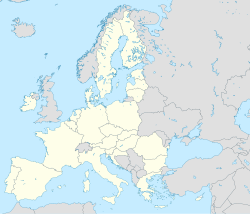EU operations
The Agency coordinates activities on land and in Union and international waters, as appropriate. This is done through the joint deployment plans (JDPs), the vehicle through which the EFCA organizes the deployment of national human and material means of control and inspection pooled by Member States. The deployment of pooled national means is coordinated by the EFCA through coordination centers in charge in a Member State or the presence of national coordinators is at EFCA premises.
While Member States are responsible for applying the rules on their own territory, in waters under their sovereignty and jurisdiction and on fishing vessels flying their flag, wheresoever their activity is carried out, the Agency has been designed to act as a facilitator enhancing cooperation and ensuring that legislation is implemented in a systematic, uniform and effective way. [9]
International operations
EFCA supports the European Union in the international dimension of the Common Fisheries Policy and the fight against Illegal Unregulated and Undeclared (IUU) activities. According to the CFP regulation, the Agency assists the Union in cooperating with third countries and international organisations dealing with fisheries, including RFMOs, to strengthen operational coordination and compliance. [10]
Sustainable fisheries agreements with non-European Union countries are negotiated and concluded by the Commission on behalf of the European Union. At the request of the Commission, the European Fisheries Control Agency provides capacity building support on fisheries control and inspection to these countries with which the European Union has a sustainable fisheries partnership agreement.
In accordance with its mandate, the European Fisheries Control Agency assists Member States to fulfill their obligations by organizing workshops and seminars for national administrations on the implementation of the IUU Regulation. EFCA also supports the European Commission as requested in evaluation missions to third countries in the framework of the IUU Regulation.
During 2016, the coordination of the ongoing Joint Deployment Plans (JDPs) and other operational plans in support of the Member States, including the international dimension, reached close to 19,500 inspections (from 17,000 in 2015) which identified 665 suspected infringements. [11]






